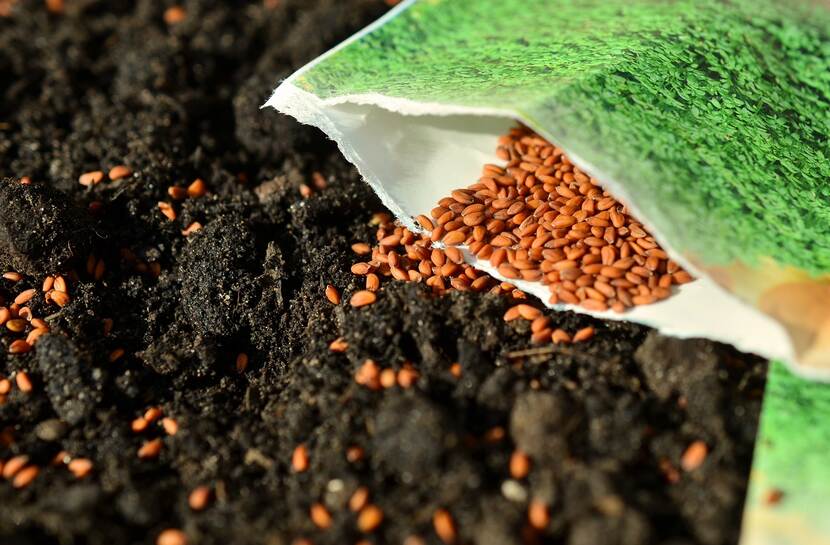Seed production in Kazakhstan: reduce dependence on imports
President of Kazakhstan Kassym-Jomart Tokayev earlier instructed the Government to provide farmers with seeds of domestic production. The problem of the country's dependence on imported seeds has been repeatedly raised by deputies. The correspondent of the Kazinform agency figured out why the country's own seed production is not sufficiently developed, and what measures the Ministry of Agriculture is taking.

As told in the Ministry of Agriculture in response to an official request from the agency, seeds of cereals, legumes, oilseeds, fodder, technical, fruit and vegetable crops are imported into the country today:
According to the data of the State Revenue Committee of the Ministry of Finance of Kazakhstan and the Bureau of National Statistics, the largest volumes of agricultural seeds are imported from Russia at 250 thousand tonnes, Turkiye at 2.0 thousand tonnes, Germany at 1.0 thousand tonnes, France at 0.7 thousand tonnes, Italy at 0.5 thousand tonnes, Hungary at 0.4 thousand tonnes, the Netherlands at 0.3 thousand tonnes.
However, products grown from imported seeds are still considered Kazakh.
Firstly, because these products are grown on our land, by the labour of our farmers. Secondly, the production of crop production consists not only of seeds, but also of pre-sowing work, fertilisation, the use of plant protection products, water irrigation, etc., the department explained.
Today, our farmers independently form seed insurance funds. These are stocks of seeds of agricultural plants to ensure sowing in case of crop failure. Also, in accordance with the requirements of the legislation, certified seed producers form insurance funds for laying primary links 100%, for the super elite 50%.
The seed fund of seed producers and agricultural enterprises engaged in their own seed production, including insurance funds, provides 89% of the country's domestic demand for seeds, the Ministry of Agriculture reported.
The ministry notes that 237 seed production entities have been certified in the country, including:
· 30 producers of original seeds;
· 82 elite seed farms (producers of elite seeds);
· 125 seed farms (producers of seeds of I, II and III reproductions).
"Taking into account the presence of farms with two or three statuses There are a total of 163 certified seed producers. Annually, certified farms produce about 400 thousand tonnes of seeds of high reproductions, " the Ministry of Agriculture said.
The main volumes of seeds of cereals, legumes and forage crops are cultivated in the northern regions (Akmola, Kostanay, North Kazakhstan), oilseeds in the East Kazakhstan region. Corn seed production is carried out in the Almaty region, potatoes in the Karaganda and Pavlodar regions, planting material of fruit and berry crops in the southern regions of the country (Almaty, Zhambyl, Turkestan).
Today the supply of seeds of certain types of crops, such as oilseeds (rapeseed 10%, safflower 12.9%), vegetable crops and sugar beet (8%) is less than 15%. This was stated earlier by Deputy Prime Minister of Kazakhstan Serik Zhumangarin during parliamentary hearings.
As noted in the Ministry of Agriculture, seed production requires large investments, specialized equipment and qualified specialists.
Today, in order to develop seed production and stimulate seed producers, state support is provided in the form of a 50%-70% reduction in the cost of seeds for elite seed farms, seed farms and agricultural producers.
Annually, about 13.5 billion tenge is allocated for subsidizing seed production. In addition, support for seed producers is provided within the framework of the following programs:
· program-targeted financing of scientific and scientific-technical activities;
· subsidizing the cost of mineral fertilizers (with the exception of organic ones);
· subsidizing the cost of pesticides, bioagents (entomophages);
· subsidizing the cost of water supply services.
In order to equip seed producers with modern technology in 2023, as part of investment subsidies, the percentage of reimbursement for the purchase of breeding and seed-growing equipment and seed cleaning and sorting equipment has been increased from 25% to 50%, the Ministry of Agriculture reported.
In addition, a comprehensive plan for the development of breeding and seed production of agricultural crops of Kazakhstan for 2024-2028 has been adopted. It includes measures that provide for improving the legislative and regulatory framework for breeding and seed production, updating the material and technical base of subjects of breeding and seed production, creating favourable conditions for the influx of young personnel into this field, developing and implementing a digital seed traceability system.
It is expected that by 2028, the share of seeds of domestic breeding will grow from 51.7% to 78.2%.
By Danira Iskakova for Kazinform. Семеноводство в Казахстане: как снизить зависимость от импорта